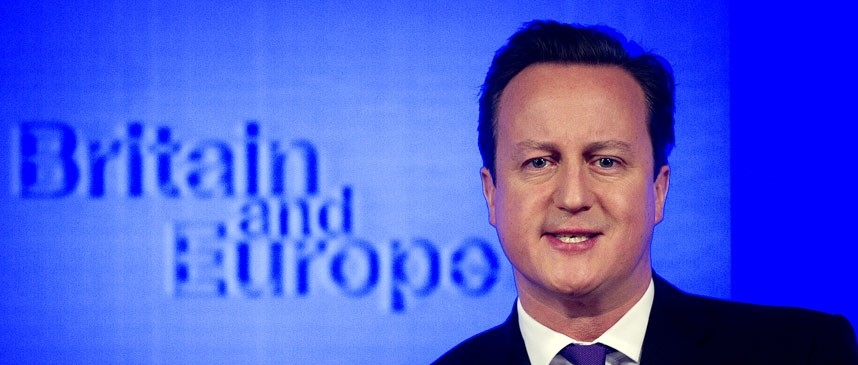
Cameron should keep Britain in the fight against international crime
David Cameron wants the EU to re-double its efforts to boost economic growth, tackle climate change and fight terrorism and organised crime. That would make the Union more the kind of club that Britain wants to stay in, according to his Bloomberg speech in January.
But on the last of these priorities at least, other European leaders can hardly credit the prime minister’s sincerity. For Britain looks set to pull out of most European crime and policing co-operation next year, using a clause negotiated under the EU's Lisbon treaty in 2007. The ins and outs are complex. But the gist is the UK will leave most EU legislation covering how police, prosecutors and courts across the Union co-operate together to investigate crime, organise extraditions, share criminal records and exchange evidence.
Cameron is under pressure from his backbenchers to do something drastic on ‘Europe’. And unlike other eurosceptic bug-bears – social policy, fisheries or financial regulation – he already has the unique right to pull out of a sensitive and sometimes controversial policy area. The only proviso is that the UK must do so by June 2014 or remain in. For the prime minister, the move must seem a no-brainer. Except that it isn’t.
For starters, British police hate the idea. While a few bits of European legislation in their area are either redundant or not applied properly, the EU has quietly revolutionised how police and prosecutors co-operate across borders over the last decade. The prime example is the European arrest warrant, under which criminal suspects are transferred speedily between national authorities within the Union. The warrant overturned the practice of EU countries – unlike Britain – refusing to extradite their own nationals for offences, and sometimes atrocities, committed in other member-states.
Moreover, the Conservatives ignore an unprecedented sea change in European co-operation in this field. Interior ministries, the police, the judiciary: none of these are the natural roosts of gushing internationalists. But, according to officials and practitioners, the last few years have seen green shoots of genuine trust start to appear between Europe’s various law enforcement bodies, the natural consequence of a decade of operating the arrest warrant together.
Nothing illustrates this better than the greater volumes of quality information starting to flow through Europol, the EU’s police agency, headed – ironically – by Rob Wainwright, a Briton. The UK is leaving a feast that it strove long to help prepare just as the main course is being served. In any case, leaving EU police and justice co-operation is likely to backfire on Cameron politically. Under single market rules, EU nationals will still be free to live and work in Britain after 2014. Ergo UK officials want to retain key elements of law enforcement co-operation, including the arrest warrant and the exchange of criminal records across borders.
To do this, they will need the acquiescence of the European Commission and other member-states. That would be a tough sell for any negotiator. But it will be nigh on impossible without a clear signal from the UK's own parliament. Many Tories are adamant that Britain should leave the European arrest warrant altogether in favour of a policy of deporting EU nationals with a criminal record. But this is illegal under single market rules and other EU countries would refuse to co-operate anyway. The Conservatives are struggling to find a coherent policy to fit their views on this matter. They have already failed to do so with the Liberal Democrats, their pro-European coalition partner.
Furthermore, disgruntled Conservative voters will not be called home by politicising European police co-operation. The prime minister should remember last year’s French presidential election when Nicolas Sarkozy could not convince voters that the failings of the EU’s passport-free travel area were more important than France's high unemployment rate. And he should heed the findings of a recent YouGov survey showing that UK voters overwhelmingly favour close co-operation with other EU countries on counter-terrorism, policing and border security, irrespective of party affiliation or dislike of 'Brussels'.
The sceptics already have their red meat. If they remain in power, the Tories will hold a referendum on Britain’s EU membership before 2018. Therefore voters are likely to end up weighing the pros and cons of European crime and policing agreements, along with the free movement of people, anyway. Until then, Cameron would be wise to remain fully engaged in such co-operation lest he create a rod for his – and his party's – back on law and order issues, an area where no conservative should fear to tread.
